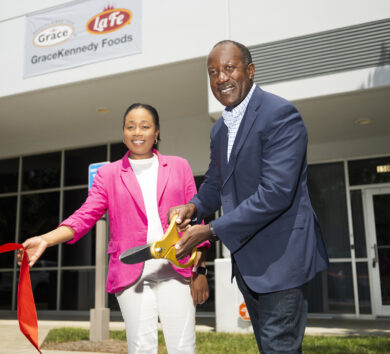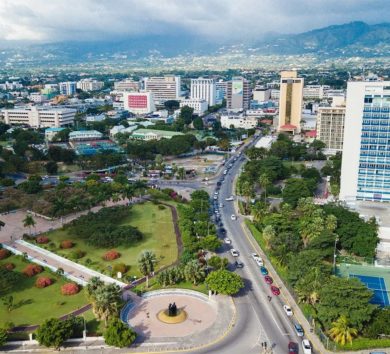
Revenues went up but net profit went south during March quarter

Durrant Pate/ Contributor
Distribution company, Derrimon Trading Limited (DTL) has seen its profitability during the March 2023 quarter eaten away by higher administrative and finance cost.
Net profit decreased to J$52.51 million, representing a decline of J$120.48 million (69.65%) below the $172.99 million for the comparative period last year. This was due to the higher administrative and finance cost during the period.
Company Chairman and Chief Executive Officer, Derrick Cotterell is “anticipating that these costs will reduce in the upcoming quarters based on the strategic initiatives that are upcoming.” A pre-tax loss of J$143.96 million was recorded for the quarter, compared to a pre-tax profit of J$93.95 million in 2022.
Group profit before tax amounted to J$70.01 million, down J$127.69 million (64.59%) over the J$197.70 million reported last year. The DTL group reported gross profit of J$1.02 billion, which represents an increase of J$218.41 million (27.19%) over the J$803.21 million booked last year.
Revenues went up to J$4.92 billion

Revenues went up by J$682.03 million (16.09%) for the quarter to J$4.92 billion over the J$4.23 billion reported for the comparative period last year. The growth in revenue is driven by improved performances from all subsidiaries within the DTL group notwithstanding the current worldwide economic climate.
Consolidated operating expenses jumped to J$898.10 million representing an increase of J$241.10 million (36.70%) over the J$657.00 million reported for the comparative period last year. The increase was mainly due to the impact arising from the consolidation DTL’s newest subsidiary, Arosa Limited and its new Select Grocers store in Clarendon this quarter.
Other notable increases were seen in utilities, salaries, distribution costs, and new operating costs from some of our other subsidiaries. Finance charges rose to J$115.55 million, up from the J$82.60 million booked in 2022.
The increase in finance charges was due in part to the full adoption of IFRS 16 for the accounting for leases and the desired treatment for foreign exchange movement in these leases. During the quarter DTL had to recalculate the USD leases to capture the movement in the exchange rate, as a result of the depreciation of the Jamaican dollar and the introduction of the new Select Grocers, which negatively impacted the company’s finance cost for the quarter.
Core activity

The distribution and local retail arm of the business recorded revenue of J$3.29 billion for the first quarter, which represents a growth of J$467.84 million or 16.57 per cent over 2022. The major contributor to this growth was recorded within the retail segment of the business given the addition of the new retail store as well as sterling performances from some of our other stores.
Cotterell explains that “the full repositioning of our distribution business was accelerated at the beginning of 2023 though the introduction of many products under the ‘Delect’ brand. We are very encouraged based on the market acceptance thus far, that the decision and timing was correct.”
He advises that the continued redefining of this business unit and ensuring that its proprietary brands attract additional world-class principals will ensure long-term sustainability and growth in profitability. He notes that DTL will continue to navigate the various challenges within the company as the impact from adversities with logistics and supply chain negatively affected the business in the first quarter.
The company chairman spoke about “the delays experienced with supplies and the influx of orders from many of our suppliers at once impacted our bottom line due to excess demurrages along with the cost for extra off-site storage. Our resilience and strength as a company allowed us to navigate that storm despite the operational and financial challenges.”
Cotterell states that the general price increases of food, overall inflation and reduction in disposable income of consumers continue to be reflected in consumers’ spending patterns and are reflected in the data gleaned from the average basket size within the retail business.
In conclusion, the DTL Chairman and CEO remarked that “The business however, was positively boosted by the re-opening of many schools, the tourism sectors, the increase in purchases of care packages from charitable organisations and other social groups along with online shopping. “







Comments